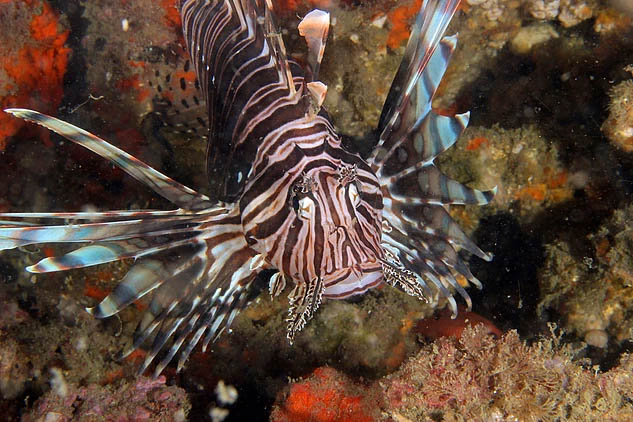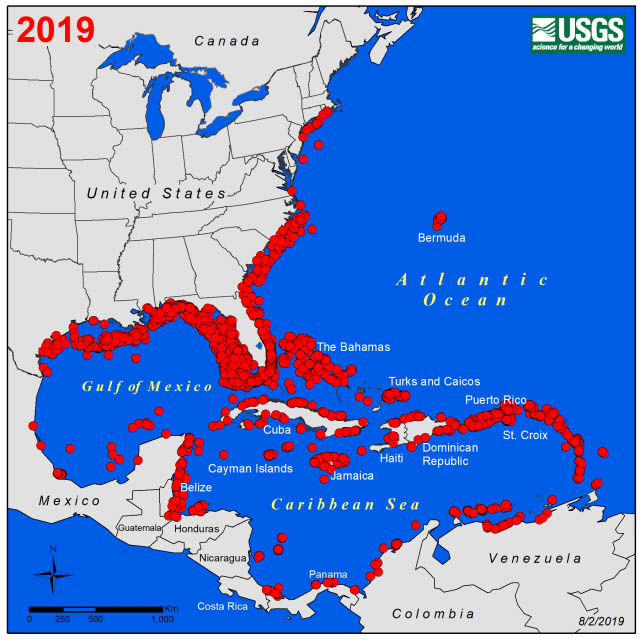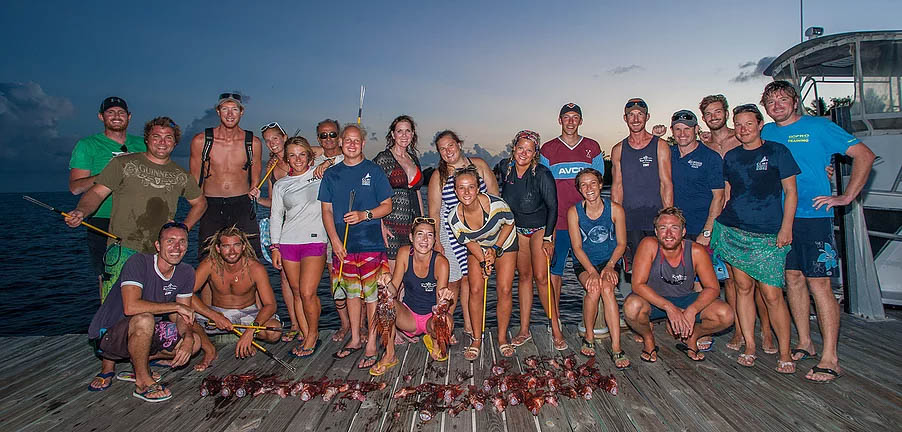We are a group dedicated to preserving our oceans’ reefs and native fish populations, which are threatened in the western Atlantic, the Caribbean, and the Gulf of Mexico by the invasive lionfish . We formed this non-profit to share information and resources relating to the infestation of this invasive species. Our goal is to raise awareness of the importance of maintaining these fragile ecosystems in the global community, and to fund efforts to mitigate the devastating effects of this invasive species.
Please share your lionfish stories, photos, videos, and resources with us here, and if you have any suggestions for things you would like included on our website or Facebook page, please contact us at http://www.lionfishuniversity.org

Lionfish are one of the most invasive aquatic species in history. They have been decimating reefs and weakening ecosystems across the Western Atlantic for over 30 years, unchecked and unchallenged. Now is the time to fight.
In the 1980s, two visually identical species of lionfish (Pterois miles and P. volitans) were introduced to the Atlantic off the coast of Florida, most likely from the aquarium trade. Since then, lionfish populations have exploded, spreading throughout the Caribbean Sea, into the Gulf of Mexico, as far north as North Carolina and as far south as Venezuela.
The impact of the lionfish invasion has been devastating. In heavily invaded areas lionfish can reach densities of 200 adults per acre. They consume almost everything in their path, reducing some native fish species by up to 90%.
Some of their prey species include snapper and grouper, and the reduction of these commercially-important fish has hurt local fisheries. They also eat herbivorous fish species, which are vital to coral reef health because they keep algae in check.
As lionfish populations grow, the invaded reefs become more susceptible to the effects of disease, overfishing, pollution and climate change. Invasive lionfish have now contributed to the listing of seven coral species as “threatened”.

Why is the lionfish so destructive?
Every year thousands of species are introduced to new places all over the world. So how has the lionfish been so successful, and why is it so destructive? It’s because lionfish are evolved for invasion success.
- They mature quickly, produce millions of offspring per year, and reproduce every four days regardless of the season.
- They are generalist predators, capable of eating anything up to half their body length, and they don’t provoke the usual avoidance response in prey.
- They have venomous spines that will repel almost any predator.
- They are resistant to most diseases and parasites in their invasive range.
How You Can Help
Fighting the lionfish invasion has to be a team effort. You can help right now by donating to Lionfish University for its ongoing trap research, or by shopping at one of our partner stores. We need your help.






